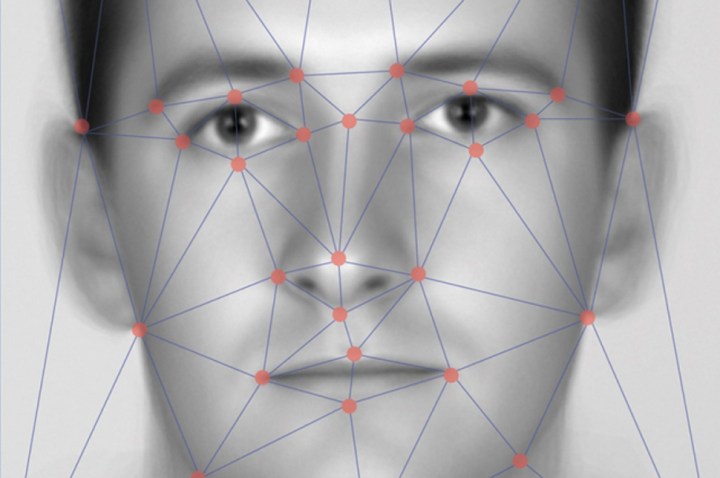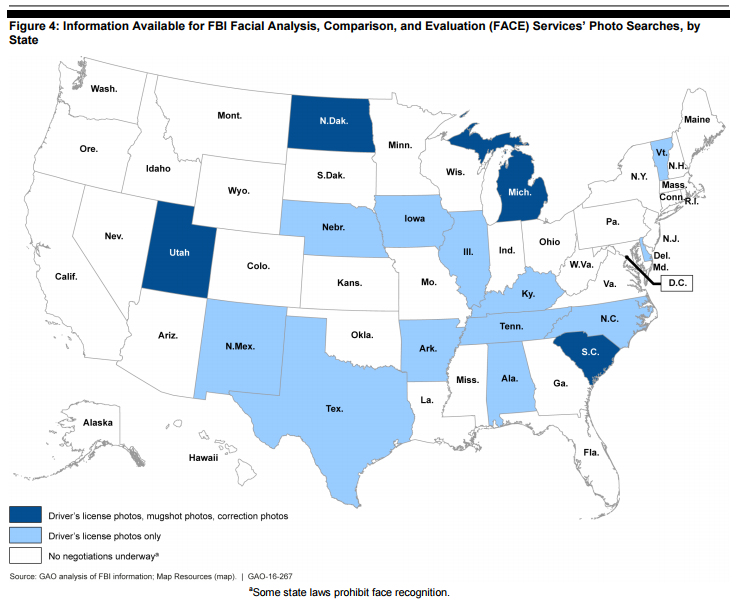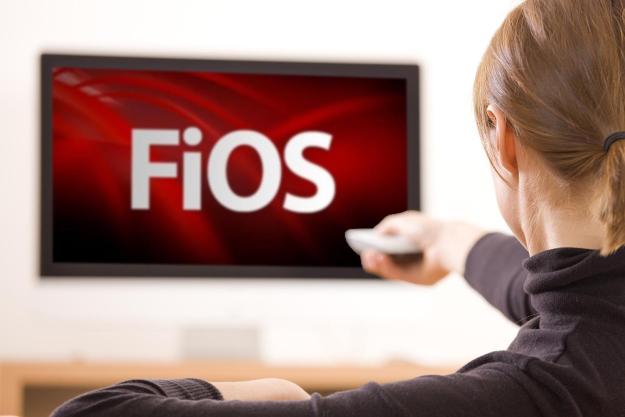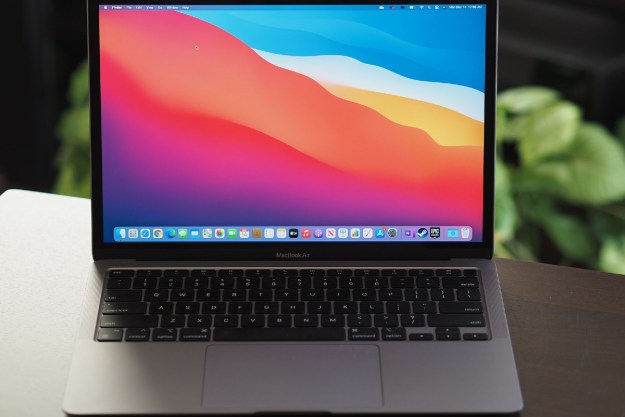
The U.S. Government Accountability Office has expressed concern about this state of affairs to the U.S. Senate. In a report to the Senate Subcommittee on Privacy, Technology and the Law, Committee on the Judiciary, the GAO called the FBI to account for concerns about privacy and accuracy for the agency’s Facial Analysis, Comparison, and Evaluation (FACE) Services Unit, according to Ars Technica.
In the most recent Privacy Impact Assessment (PIA) of the FACE unit, approved May 1, 2015, the FBI explained why and how it uses facial photos and other personal identification information. Two key points stick out in the PIA: the purpose of collecting the photos and the level of notice to people whose photos are collected. The purpose and use of the photos are for criminal law enforcement activities, for intelligence activities, “to conduct analysis concerning subjects of investigative or other interest,” and for “administrative matters (statistical reporting).” The “other interest” part of that feels a little loose.
Also, you don’t have any say about having your photo on file. The PIA states in a section on individual notification of photos on file that “notice is not provided,” that “individuals do not have the opportunity to decline to provide information,” and that “individuals do not have the opportunity to consent to particular uses of the information.”
The 411.9 million images to which the FBI has access include 30 million mug shots, driver license photos from 16 states, the State Department’s visa and passport database, and a biometric database maintained by the Defense Department. In addition to the privacy issue already mentioned, the GAO is concerned about accuracy and about including innocent citizens in what is primarily a criminal investigative tool.
As Ars Technica points out, the GAO report states, “The FBI has entered into agreements to search and access external databases—including millions of U.S. citizens’ drivers’ license and passport photos — but until FBI officials can assure themselves that the data they receive from external partners are reasonably accurate and reliable, it is unclear whether such agreements are beneficial to the FBI and do not unnecessarily include photos of innocent people as investigative leads.”
There’s also a question of effectiveness and return on investment with this system. In the FBI’s own description of the FACE unit, apparently 6,000 leads have been identified, though most are still under investigation. That number sounds relatively small for a program in effect since 2011. Even more astounding is that only two arrests and two victim identities have resulted from utilization of the system. Surely those four instances mattered a great deal to the parties involved, but the ROI seems pale in comparison to the scale of the operation.
Originally posted June 19, 2016. Updated 2-21-2017 by Bruce Brown to replace General Accounting Office graphic of states with information available for FBI Facial Analysis corrected by the GAO 8-3-2016.
Editors' Recommendations
- Your iPhone will be able to store your driver’s license in these eight states
- ICE weaponizes state-issued licenses against Maryland’s undocumented immigrants
- FaceApp says it won’t hold on to your face photos. Should you trust it?




